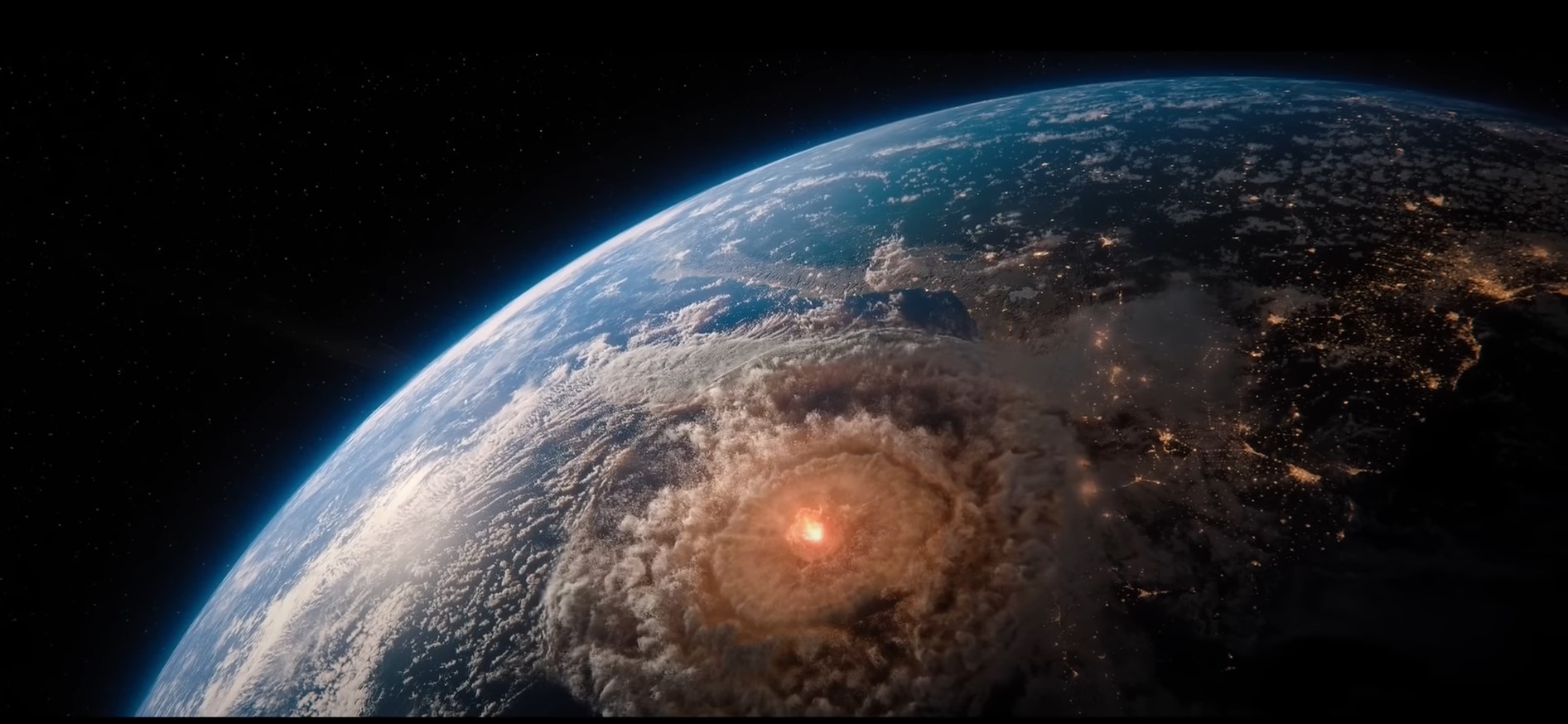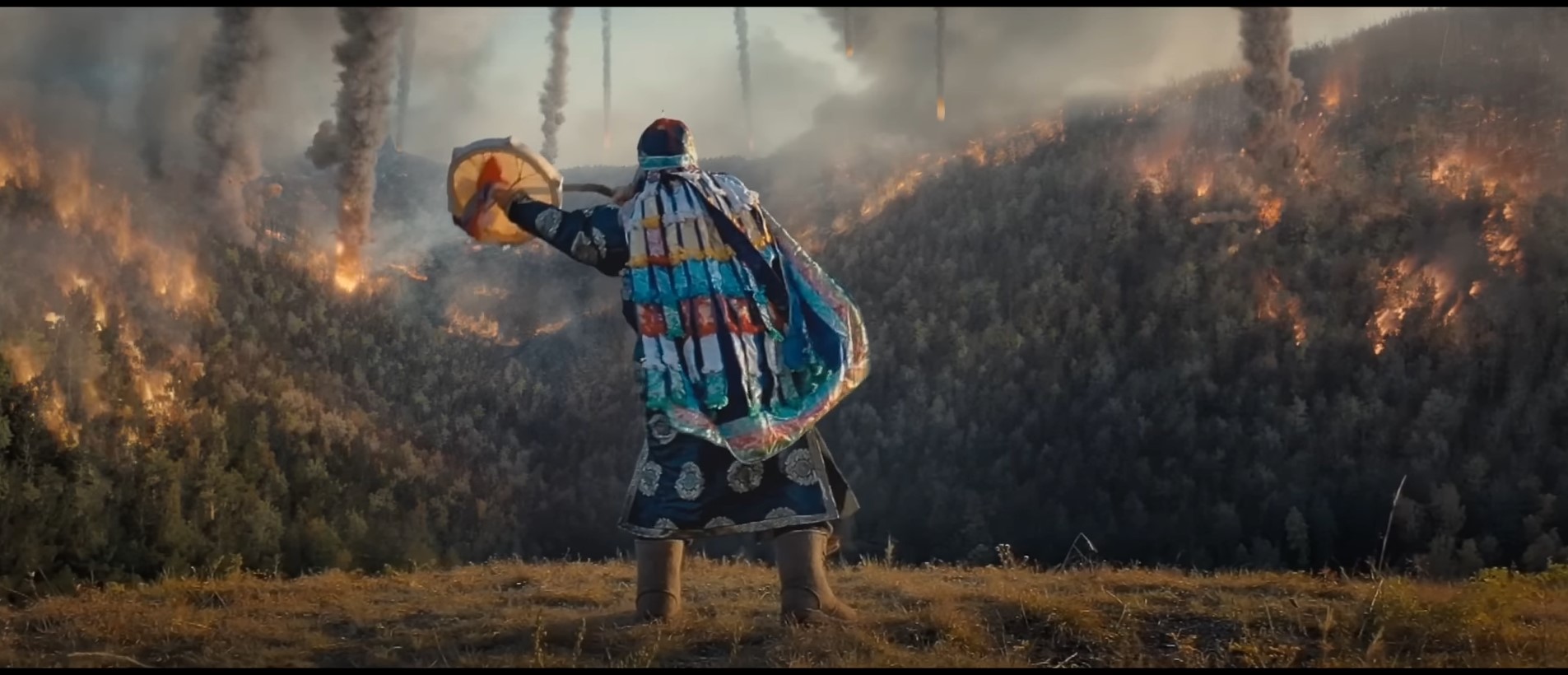Set against the backdrop of an Earth-comet collision, Don’t Look Up satirizes ignorance and conflict in modern society, and explores the role of film and social media in communicating social messages. The film questions how audiences receive messages and the role of art, while also addressing the impact of social media on truth and the shaping of public opinion.
Don’t Look Up, directed by Adam McKay, uses the imminent threat of a comet collision with Earth as a backdrop to explore human nature, social criticism, and a myriad of philosophical themes. The film also explores the complexities of politics, media, and civic issues in the modern world, symbolically projecting a cross-section of our society through satire and criticism. As the point of view is relatively clear, I think it succeeds to a certain extent in penetrating modern society based on satire, criticism, self-help, and ridicule of our society. Based on this, I would like to take a look at the state of modern society in terms of ‘ignorance’ and ‘conflict’ that I personally felt while watching the movie from the perspective of ‘movies’ and ‘social media’.

Movies cover a wide range of topics, but they are especially concerned with the confusion and conflicts that arise in the process of communicating social messages. There has been a long-standing debate about whether it is essential for movies to convey messages to society or whether they should simply function as artistic expression. This movie in particular is at the forefront of this discussion, asking these questions directly to the audience. What’s impressive, however, is that it doesn’t just ask the questions, it focuses on the process of letting the audience find the answers for themselves. The questions the movie asks don’t just stay in the movie, they’re also questions that recur in our own lives.
First, in relation to the movie, the interview scene with the director of the movie about “conflict in movies” in the second half presents a meaningful consideration of the process of conveying social messages to the audience through movies. The interview scene shows a society where a one-dimensional message of “let’s not fight with each other” is prominent even though it is scientifically true that meteorites are falling. The audience, who has been following the movie from the protagonist’s point of view, knows that this is not a real solution, and it is understandable that the movie is frustrating to watch. However, what do we know in real life? The question of what cinema should look like in a situation where answers and visions are not as clear as in real life is difficult to answer. Therefore, I think that the interviews in the film represented films that pretend to be art without knowing the truth, films that pretend to be awake, and the public that consumes and pretends to know such films. This leads to the question of what form ‘cinema’ should take and how we should look at it in a situation where we do not know much and are just in conflict. In conclusion, the audience that receives a movie can create a certain normativity in the abstract through habit and familiarity, as Benjamin says, “The distracted public allows the work of art to slip into them.” However, I think we need an attitude that goes beyond habituality and actively accepts certain images or signals in the midst of ‘distractions’ to create normative values.

Should a movie be evaluated only from an aesthetic and aesthetic point of view? I don’t think so. It can be seen that it can play the role of ‘conveying a message’ and ‘escape from a chaotic society’ at the same time. In other words, there can be works that actively contain political dogmas and social messages and try to change or influence the audience, and there can be works that simply satisfy the audience aesthetically. Art can also be valuable as a mirror to political polarization and social issues, using a variety of techniques and perspectives to seek the truth and challenge the acceptance of falsehoods. Whether it’s protest art, political satire, or a call for social change, film can serve both as a platform for open dialogue and discourse and as a motivator for individual action. But does cinema have the power to change things? Isn’t it a skit performed by “pretentious cinema” and “insubstantial audiences” that relegates one-dimensional pleasures and attractions such as action and martial arts to the lowest common denominator, while throwing out social messages and trying to consume so-called “pretentious cinema?” In fact, the questions of “why make art?” and “why consume art?” are not unique to cinema, but are common to everything from traditional painting to contemporary art. However, even works that seem to be disrupting reality can be nothing more than a reiteration of what the viewer already knows. This can lead to cumulative fatigue and a sense of nothingness, and it is inevitable that a skeptical view of art will arise.
The message of the movie goes beyond mere satire or criticism, and leads to a deeper discussion about the role of art in modern society. The various visual and narrative techniques that the director chooses to convey this message not only enhance the movie, but also give the audience a new perspective. This goes beyond just conveying a social message, and makes the audience reflect on themselves and society through the movie.
Next, in terms of “social media,” social media has emerged as a powerful platform to ignite social and political movements, from the Arab Spring to the BLM movement, social media has shaped public opinion and mobilized and amplified marginalized voices. Individuals’ information and stories have been catalyzed by media platforms to transcend demographic boundaries, creating powerful messages and shaping public opinion. But are today’s individuals wise enough to utilize social media in its fullest form?
Even what we think we know may be manipulated. The movie shows how truth can be manipulated and public opinion can be swayed to serve the interests of a select few, even in the face of impending catastrophe. It also raises questions about art and the social and political structure itself in a world filled with misinformation and manipulation of facts. However, the media and social media are not only failing to respond to the propaganda driven by a combination of clueless politicians and self-interested capitalists, they seem to welcome the conflict. It also shows the social atmosphere, social media, and propaganda that ignore and ridicule the voices of those calling out about the need to be prepared for meteorites, which I felt showed the way people are trying to go into the fog of ignorance themselves in search of stimulating information and content rather than scientific truths and findings. In this process, “Don’t Look Up” and “Look Up” are spread as challenges, satirizing the social conflicts that arise and the political, media, and civic figures surrounding them, and the question arises as to what would be appropriate. In addition, Kate’s crying plea that “there’s a 100% chance we’re going to die” is consumed as a meme for its hilarity, emphasizing the meme culture, which reflects the nature of modern society and social media in particular. The scene reveals how we tend to consume absurdities in modern society, even when they are based on solid facts, for humor and instant gratification. The movie’s ability to make these absurdities seem comical is a poignant commentary on the nature of modern social media.
“Don’t Look Up” is a movie that raises philosophical questions about modern society, including the above aspects, and gives us the opportunity to reexamine them. It also makes us reflect on the meaning of movies in modern society, not only through the movie itself, but also through the movie within the movie. In particular, it emphasizes the fact that in the fast-paced world of social media and a plethora of content, we often lack the time and space to properly consider real crises and the philosophical questions that arise from them. It makes us take a second look at our perception of reality and values, and reconsider our role as consumers of art and participants in media.
 I’m a blog writer. I want to write articles that touch people’s hearts. I love Coca-Cola, coffee, reading and traveling. I hope you find happiness through my writing.
I’m a blog writer. I want to write articles that touch people’s hearts. I love Coca-Cola, coffee, reading and traveling. I hope you find happiness through my writing.